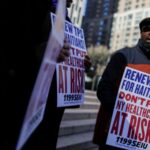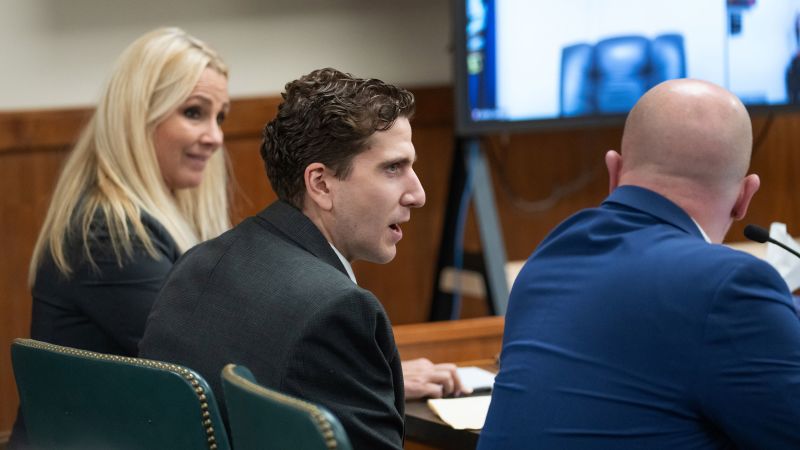Steve Goncalves was taken aback over the weekend upon learning that prosecutors in Moscow, Idaho, had struck a plea deal with Bryan Kohberger, the man accused of the 2022 stabbing deaths of his daughter, Kaylee, and three other University of Idaho students. Just days before, Goncalves, along with other victims’ families, had urged prosecutors to continue pursuing the death penalty, hoping the trial would bring closure.
“We don’t want to deal. We’re not interested in that. We didn’t wait two and a half years for this,” Goncalves expressed, recounting his conversation with prosecutors. He was left feeling blindsided when, two days later, an email informed him of the plea agreement.
The plea deal, initiated by Kohberger’s defense, would see him plead guilty to all four counts of murder in exchange for the death penalty being dropped, according to sources familiar with the matter. This decision has been met with mixed reactions from the victims’ families, highlighting a divide in how justice is perceived.
Family Reactions to the Plea Agreement
Goncalves and his family have labeled the deal as “hurried” and “secretive,” criticizing prosecutors for not consulting them about the plea’s conditions. Jeff Kernodle, father of victim Xana Kernodle, echoed this sentiment, calling the deal a “missed opportunity” to set a precedent for accountability in such heinous crimes.
“It could have sent a message to others that these kinds of horrific crimes carry real consequences. Instead, four beautiful lives were taken, and the person responsible won’t be used as an example to help prevent something like this from happening again,” Kernodle stated.
Meanwhile, the families of the other two victims have expressed support for the plea agreement. Ben Mogen, Madison’s father, told the Idaho Statesman that he chose acceptance, believing the plea would allow his family to avoid a trial and continue healing. Similarly, Ethan Chapin’s mother, Stacy, expressed her family’s support for the plea bargain.
Legal Proceedings and Implications
The plea deal is not yet finalized, as State District Judge Steven Hippler must approve it. A hearing is set for 11 a.m. Wednesday, where the plea agreement will be addressed. Legal experts suggest that the judge may require Kohberger to confess to the crime’s details, which could impact the plea’s acceptance.
Plea negotiations are typically confidential, and the specifics of the discussions between prosecutors and Kohberger’s attorneys may remain undisclosed unless one party chooses to reveal them. University of Idaho associate law professor Samuel Newton explained that such deals often involve incentives like reduced sentences in exchange for guilty pleas, which can be appealing given the lengthy and costly nature of death penalty cases.
“The family is looking at … decades of legal proceedings in a death penalty case, versus if he takes life without parole, it’s done and the family gets that degree of closure,” Newton commented.
Challenges for the Defense
Kohberger’s defense has faced numerous setbacks, including rulings that barred them from presenting an official alibi or an “alternate perpetrator” theory. These legal hurdles may have influenced the defense’s decision to propose a plea deal.
During the upcoming hearing, Judge Hippler is expected to ensure Kohberger comprehends the implications of waiving his right to a trial and potential appeals, should he accept the plea.
Calls for Transparency and Accountability
Both Goncalves and Kernodle have criticized the plea deal for not mandating Kohberger to disclose details of the crime, which leaves unanswered questions about the motive and execution of the stabbings. They hope Judge Hippler will require Kohberger to provide such information in court, offering closure and diminishing the grounds for his supporters to maintain his innocence.
Goncalves also believes the plea deal should prevent Kohberger from profiting from his story in the future. The possibility of an Alford plea, where Kohberger could maintain innocence while accepting the plea, remains slim. Newton noted that such a plea would require the state to present a factual basis for the guilty plea, and it is unlikely prosecutors would agree without assurances of Kohberger’s responsibility for the killings.
The upcoming court decision will be pivotal in determining how justice is served in this tragic case, with the victims’ families and the community closely watching the proceedings.
About The Author
 US Halts Some Munitions Shipments to Ukraine Amid Defense Review
US Halts Some Munitions Shipments to Ukraine Amid Defense Review Mastering Stealth in Death Stranding 2: A Comprehensive Guide
Mastering Stealth in Death Stranding 2: A Comprehensive Guide Federal Judge Halts Early Termination of TPS for Haitian Migrants
Federal Judge Halts Early Termination of TPS for Haitian Migrants The Complex Dynamics of Late Capitalism: Control, Crisis, and Compliance
The Complex Dynamics of Late Capitalism: Control, Crisis, and Compliance MAGACOIN FINANCE Joins Solana and Chainlink on Analyst Picks for Q4 2025
MAGACOIN FINANCE Joins Solana and Chainlink on Analyst Picks for Q4 2025